Weekly Reader: Yiddish and the Occult
What does Yiddish have to do with the occult? If you’ve ever read a novel by Isaac Bashevis Singer you’ll know it’s quite a bit. Or if you’ve ever seen The Dybbuk. Or if you’ve encountered any number of Yiddish works that explore the magical, mystical, and richly esoteric Jewish tradition. Yiddish-speaking Jews in Eastern Europe held spiritualist séances, consulted with psychic mediums, read their horoscopes in the Yiddish press, consumed Yiddish occult literature, and attended stage shows featuring telepathy and hypnosis. On May 11 we’ll get a definitive account from scholar Samuel Glauber-Zimra on “Modern Occultism in Yiddish Popular Culture,” presented as part of the Yiddish Book Center’s 2023 Decade of Discovery theme, Yiddish Around the World. (Register for the Zoom talk here!) Until then, here are some items from our archives on this fascinating and often overlooked subject.
—Ezra Glinter, Senior Staff Writer and Editor
The Demonologist
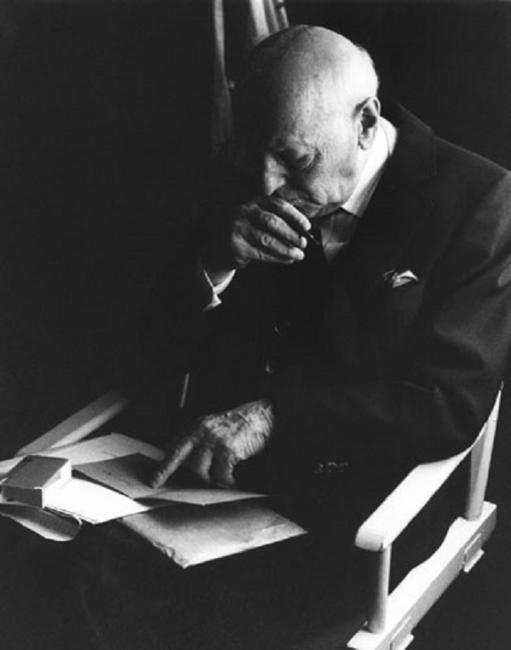
“Soon after arriving in the US in 1935, and after frustrating stops and starts, Bashevis began in the 1940s to publish fantastical monologues spoken by demons . . .” So writes Saul Noam Zaritt of Isaac Bashevis Singer, perhaps the greatest fiction writer of the Yiddish occult. But Bashevis’s oeuvre is large and somewhat unwieldy, so if you’re looking for a place to start, this annotated guide was written for you.
Read an annotated guide to the work of Isaac Bashevis Singer
Possessed
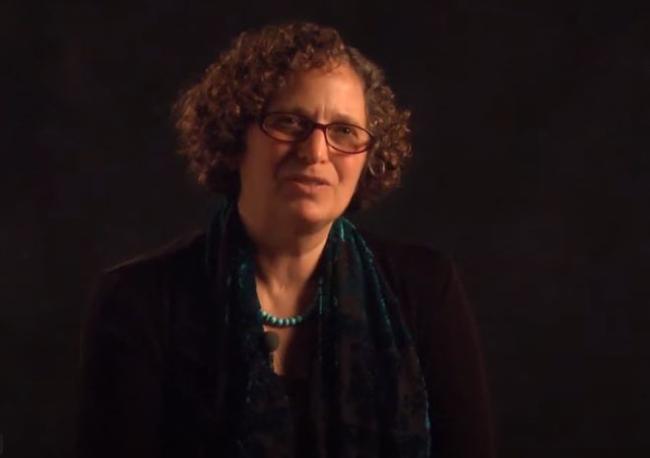
The most famous work of Yiddish literature having to do with occult themes is, without a doubt, S. An-ski’s The Dybbuk. A phenomenon of the stage and screen, The Dybbuk has retained its place as the most popular and famous Yiddish play of all time. In this oral history interview, Kathryn Hellerstein, associate professor of Germanic languages and literatures at the University of Pennsylvania, shares a story about attending a screening of The Dybbuk with two of its original actors—the only cast members to survive the Holocaust.
Stage Magic
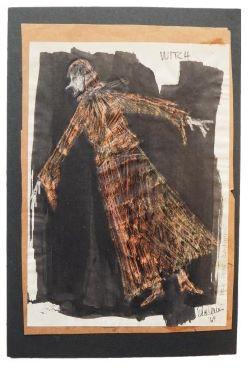
The Dybbuk was far from the only Yiddish play to deal with the occult. In Itzik Manger’s Der kishef-nign (The Enchanting Melody), the enchantress Bobe Yakhne teaches the poor Avreyml a farkishefter nign—the titular enchanted melody—which makes him rich and prosperous on the strict condition that he shares the melody with no one. In 2020, Dina Harris, a playwright and costume designer, was clearing out her attic and found a series of sketches she did for the long-running 1964 production of Manger’s play staged by the National Yiddish Theatre Folksbiene.
View Dina Harris’s costume sketches in this piece by Center fellow, Caleb Sher
Signs from Above
![ROSH HASHANAH STARS 4 [1].jpg](/sites/default/files/styles/max_650x650/public/ROSH%20HASHANAH%20STARS%204%20%5B1%5D.jpg?itok=DDtF2mKj)
People are often surprised that Judaism, far from shunning astrology, has usually embraced it. Talmudic scholars argued over the influence of stars on daily life and created a complex numerological system, with each of the planets corresponding to a different angel. It’s no surprise, then, that there’s also a fair bit of Yiddish writing on the subject. In this essay, Ozzy Gold-Shapiro describes their search through the literature for a Yiddish take on astrology. One find is a 1909 book by Professor (Abraham) Hochman titled Di geheyme kraft, oder, der shlisl tsu der nevue (The Secret Art, or, the Key to Prophecy), which features a well-dressed man on the cover, surrounded by skulls and angels.
The Modernist
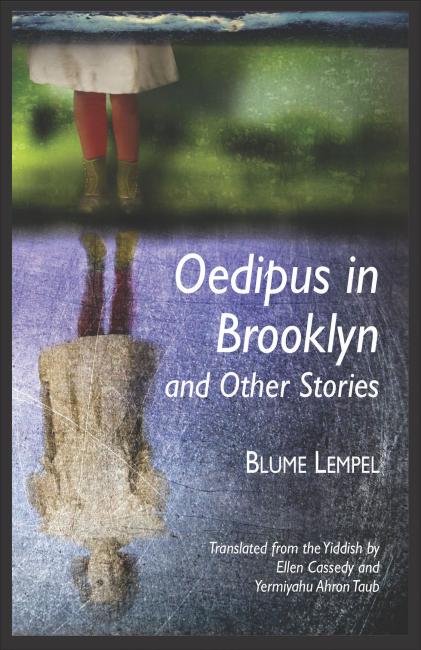
I don’t know if you would categorize the writings of Blume Lempel as “occult,” but they can definitely be surrealistic and strange. Not in a bad way, of course. In this podcast episode Ellen Cassedy talks about what drew her and her fellow translator, Yermiyahu Ahron Taub, to Lempel’s stories and gives us a taste of Lempel’s bold, surprising work.
Waiting for Ephraim
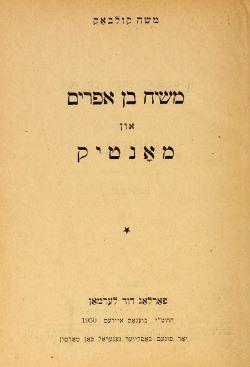
Much of Yiddish occult literature has to do with the figure of the Messiah, as in Bashevis’s celebrated novel about Sabbatianism, Satan in Goray. One of my own favorites in this genre is a thoroughly weird novella by Moyshe Kulbak titled Meshiekh ben efrayim (The Messiah of the House of Ephraim). I found a translation of the novella in an out-of-print anthology titled Yenne Velt: The Great Works of Jewish Fantasy and the Occult, but you can also read the original in the Steven Spielberg Digital Yiddish Library.
